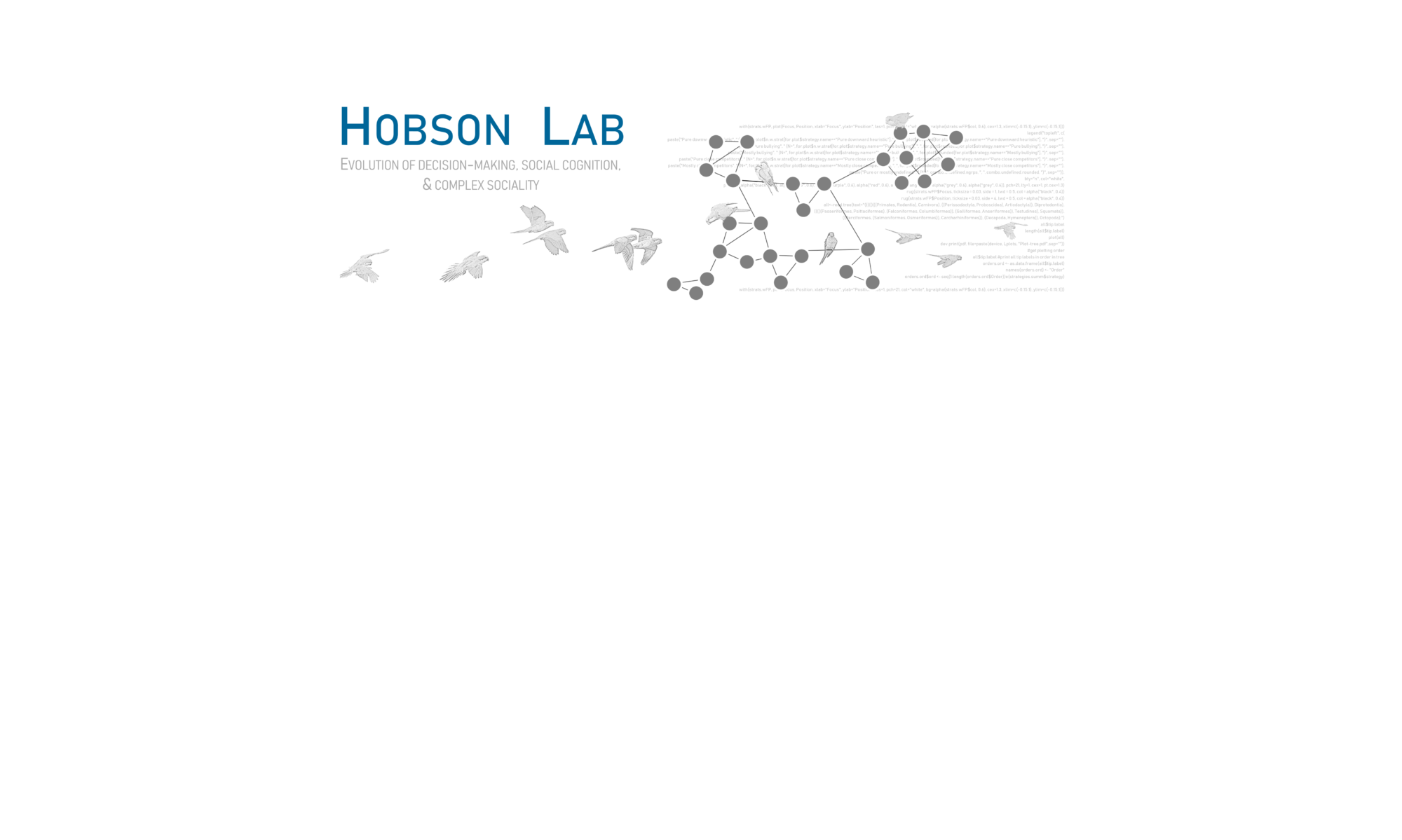My PhD student Sanjay Prasher will be giving his dissertation defense talk this week! Sanjay’s dissertation is called “An empirical and computational investigation of relationship dynamics and emergent social structure” and uses a combination of lab-based experiments and agent-based modeling to test several hypotheses about the roles of information, cognition, and social history on bobwhite quail sociality, as well as social plasticity more generally.
We welcome anyone interested to the talk! It will be 1:00-2:00pm Thursday May 29th. You can visit this link to see the talk start time in your local time zone. From that link, you can click “Join this meeting” to access the Zoom room.
Sanjay’s papers from his dissertation work aren’t published yet, but should be soon! (see links below for preprints). Sanjay will be summarizing these three projects in his defense talk.
- Prasher & Hobson “Exploring the factors underlying adaptive social plasticity in foragers using an agent-based model”: second revisions are back in review at Integrative and Comparative Biology (link to preprint)
- Prasher & Hobson “Social plasticity across contexts in bobwhite quail”: currently in review (link to preprint)
- Prasher, van der Marel, & Hobson “Social structure and the drivers of relationships in the Northern bobwhite”: currently in prep.
Sanjay has published papers from his Master’s work (University of Ottowa) and several papers during his time here at the University of Cincinnati. You can see the full list here. From his work in the lab, Sanjay has been a coauthor on papers on how to assess whether behaviors might be interchangeable, and used in similar ways by animals in social groups (“A framework to evaluate whether to pool or separate behaviors in a multilayer network“), a paper with an overview and recommendations for the use of behavioral data collection apps (“A comparison of low-cost behavioral observation software applications for handheld computers and recommendations for use“), and a paper on introducing students to R coding using a vampire bat game (“An interactive online game that uses simulations of hunting vampire bats to introduce students to coding“).





